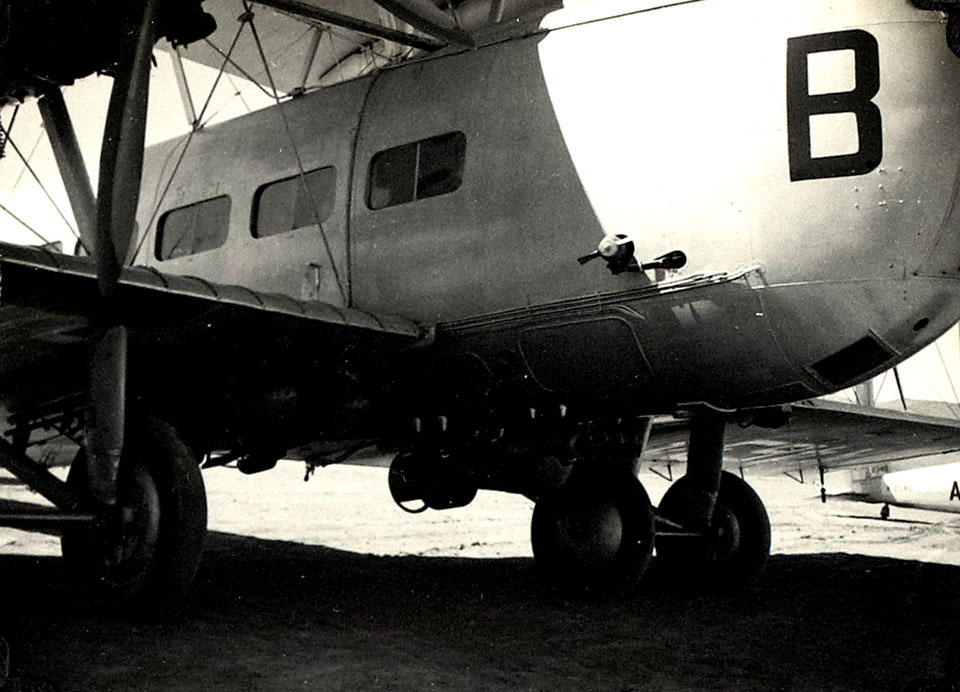
Online Collection
« Prev - 1 of 1 results - Next »
'Loaded up. A deadly brood', Vickers Valentia aircraft, 1937
Photograph, India, North West Frontier, 1937.
Royal Air Force Vickers Valentia Type 264 aircraft fitted with external bomb racks.
In late 1936 there was growing agitation against British rule in Waziristan, led by the Waziri leader Ghazi Mirzali Khan Wazir, 'the Fakir of Ipi'. In response the British launched a military operation into the Khaisora Valley, hoping that a show of strength alone would suffice to reduce unrest. However, the two main columns of troops met stiff resistance and their supply lines were disrupted, forcing them to retire. The operation's failure triggered a wider insurrection and the ensuing guerrilla war drew in more British and Indian forces. Over 30,000 troops, together with aircraft and armoured cars, were deployed to the region. Violence subsided in late 1937 and after brief flare-ups in 1938 and 1939 the North West Frontier was relatively quiet until India became independent in 1947.
The Royal Air Force developed close air support tactics in the 1930s and used the operations on the North West Frontier of India to test them. Six squadrons were deployed during the operations in Waziristan, primarily flying the Westland Wapiti, Hawker Hart and Hawker Audax aircraft. Larger bomber/transport aircraft like these Vickers Valentias were used for resupply and were, when fitted with external bomb racks, also used for air strikes.
From an album of 347 photographs compiled by Captain (later Major) Wynne Howes-Roberts, 1st Battalion 13th Frontier Force Rifles, India and UK, 1936-1937.
NAM Accession Number
NAM. 1997-12-12-152
Copyright/Ownership
National Army Museum, Out of Copyright
Location
National Army Museum, Study collection
Object URL
https://collection.nam.ac.uk/detail.php?acc=1997-12-12-152

